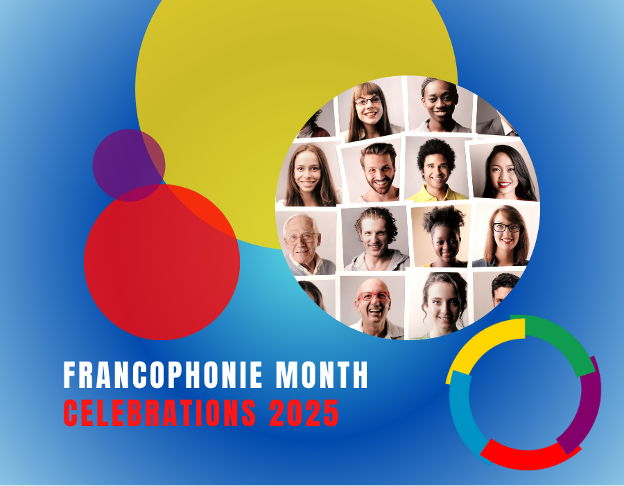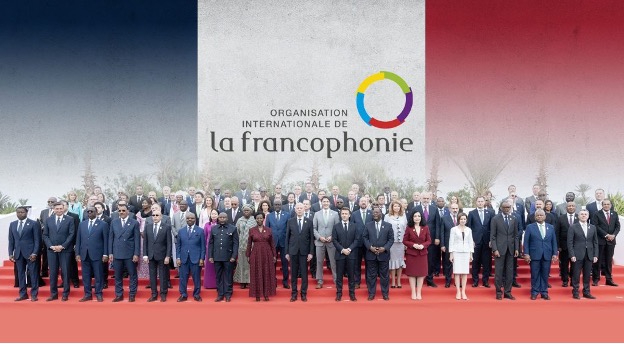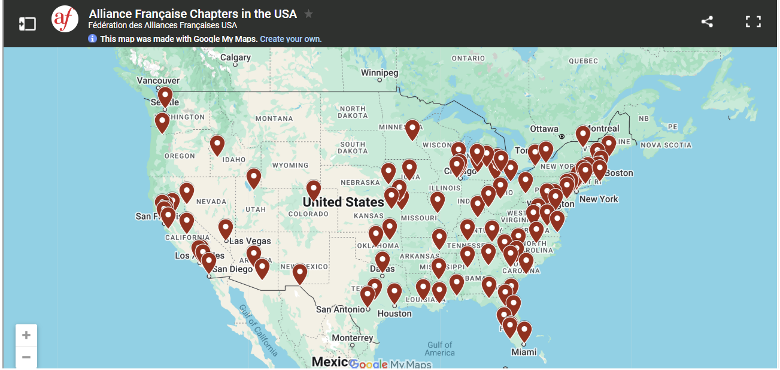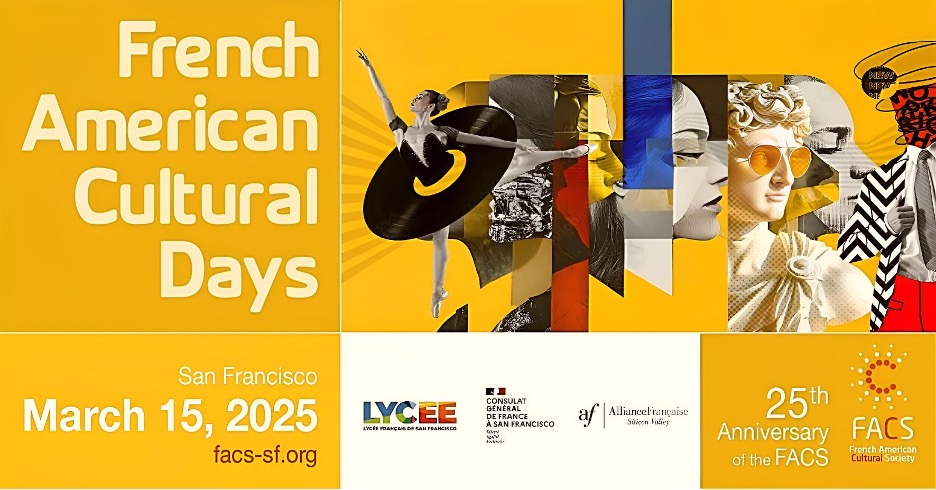Francophonie Month in the U.S. - A Celebration of Language, Culture and Global Connections

Francophonie Month in the U.S.: A Celebration of Language, Culture, and Global Connections
Each March, Francophonie Month transforms cities across the United States into vibrant hubs of French language, culture, and international exchange. With 321 million French speakers worldwide and 88 nations within the Organisation Internationale de la Francophonie (OIF), the celebration is more than just a tribute to a language—it is an invitation to explore the diverse cultures, histories, and artistic traditions of the Francophone world.
At the heart of this celebration is the Alliance Française network, which plays a crucial role in promoting Francophonie throughout the United States. Through its 100+ chapters, the organization fosters linguistic education, cultural immersion, and global partnerships, ensuring that Francophonie Month continues to thrive and expand its reach.
The Francophonie: A Historical and Cultural Overview

The concept of Francophonie was first introduced by geographer Onésime Reclus in the 19th century, but it wasn’t until 1970 that it became institutionalized with the creation of the Organisation Internationale de la Francophonie (OIF). The OIF was founded by Senegalese poet and statesman Léopold Sédar Senghor, Tunisian leader Habib Bourguiba, Nigerien President Hamani Diori, and Cambodian Prince Norodom Sihanouk, who envisioned a global community united by the French language and shared cultural values. The OIF promotes language, cultural exchange, diplomacy, education, and economic cooperation among its member states.
A significant celebration of the Francophonie is the Month of Francophonie, which highlights the French language and Francophone culture. The French Ministry of Culture established Francophonie Week (Semaine de la langue française et de la Francophonie) in 1995, reinforcing the importance of linguistic and cultural exchanges. The month-long celebration includes gastronomy, cultural events, and educational initiatives. As part of this, International Francophonie Day is observed annually on March 20, marking the anniversary of the creation of the Agency for Cultural and Technical Cooperation (ACCT) in 1970—the first step toward the OIF.
In recent years, the OIF has expanded its influence beyond traditional Francophone regions, particularly in the United States, where French has a longstanding cultural presence. Historically, French has played a significant role in Louisiana, parts of New England, and other regions with strong Francophone heritage. Today, the OIF actively supports initiatives aimed at preserving and promoting the French language in the U.S.
A key partner in these efforts is the Network of the Alliance Française, the oldest and most established global organization dedicated to promoting the French language and culture. Founded in 1883, the Alliance Française has built an extensive worldwide network, making it an essential institution for the OIF’s mission. With over 100 chapters across the United States, the Alliance Française plays a crucial role in fostering French education and cultural exchange. As a long-standing advocate for Francophonie, the Alliance Française provides an effective platform for linguistic and cultural engagement across different communities. The OIF collaborates with the Alliance Française to provide sponsorships, resources, and educational programs, ensuring greater access to French-language learning and cultural activities. This partnership strengthens the Alliance Française’s capacity to expand its programs, organize high-profile cultural events, and offer scholarships for students learning French. By leveraging the Alliance Française’s global network and expertise, the OIF enhances its efforts to support French education and culture on an international scale.
The Sates of Francophonie in the United States
As the French language continues to grow globally, it remains a key player in diplomacy, business, and education. French is an official language in the United Nations, the European Union, the African Union, and numerous international organizations. In the U.S., French is the second most studied foreign language, with a revival in bilingual education, cultural programming, and business collaborations.
Over the past two decades, French language and culture have experienced an impressive resurgence in the United States, reversing a long trend of decline and reaffirming the influence of Francophone culture across American society.
For years, French in America seemed destined for obscurity. Across the country, school districts slashed language budgets, prioritizing Spanish, Mandarin, or technology-focused subjects over traditional European languages. However, a shift in cultural appreciation, bolstered by globalization and strengthened ties between the U.S. and Francophone countries, has ignited renewed curiosity and enthusiasm among Americans.
The evolution of French in America is a story of adaptation rather than erosion. According to the Modern Language Association (MLA) and the U.S. Census Bureau, French remains the fourth most spoken language in the country, with over 1.2 million speakers. While this number has fluctuated over time, French has maintained a foothold thanks to a growing Francophile movement, increased French immersion programs in schools, and the global influence of French-speaking nations.
French is particularly thriving in areas with historical ties to the language. In the Northeast, cities like New York and Boston have seen an increase in French expatriates, while in states like Maine and Vermont, French-speaking communities—descendants of Québécois immigrants—have seen a revitalization of interest in their linguistic heritage. Additionally, the rise of French dual-language programs in states like Texas and California suggests a shift in how Americans perceive the utility and appeal of the language.
Nowhere is the French language’s revival more evident than in Louisiana, a state once at risk of losing its Francophone heritage. French was historically spoken across Louisiana, particularly by Cajuns and Creoles, but by the mid-20th century, the language was actively suppressed in schools and public life. For decades, the number of speakers declined, and by the 1990s, many feared that Louisiana French and Creole were on the verge of extinction. However, the past two decades have seen a remarkable turnaround. Organizations like CODOFIL (Council for the Development of French in Louisiana) have spearheaded efforts to promote French education, leading to an expansion of immersion schools and cultural initiatives. The number of students enrolled in French immersion programs has risen steadily, and community-driven efforts have reinvigorated local pride in the language.
At the same time, Louisiana’s deep connection to its French roots has become an asset in its economic and cultural positioning. French-speaking business and tourism partnerships, particularly with Canada and Francophone Africa, have made the language more relevant than ever. Festivals like Festival International de Louisiane in Lafayette and the French Quarter Festival in New Orleans celebrate the state’s linguistic heritage, drawing thousands of attendees each year.
Beyond Louisiana, French culture is enjoying a moment of heightened visibility in the U.S. The success of French-language films and television series on streaming platforms, the rise of French-inspired gastronomy, and increased travel between France and the U.S. have all contributed to a renewed fascination with French culture. Furthermore, diplomatic and educational initiatives, such as the French Heritage Language Program, have worked to preserve the language among immigrant communities from Francophone Africa and the Caribbean.
The resurgence of French in the U.S. does not imply a return to widespread bilingualism, but rather a shifting dynamic in how Americans engage with languages. French is increasingly viewed not just as a historical or diplomatic language, but as a living, evolving cultural force. The growing demand for French-language programs and the revitalization of heritage dialects suggest that, far from disappearing, French is finding new life in unexpected places.
The Role of the Alliance Française in Promoting Francophonie in the U.S.

The Alliance Française network plays a vital role in expanding Francophonie across the United States, serving as a bridge between American audiences and the diverse world of French-speaking cultures. With over 100 chapters nationwide, the organization promotes not only the French language but also the rich cultural diversity of the Francophone world, which extends far beyond France to Africa, the Caribbean, North America, Europe, and the Pacific. Through language courses, cultural programs, and artistic exchanges, the Alliance Française fosters deeper engagement with Francophone traditions, literature, cinema, and music.
A key driver of this growing interest is the rising popularity of Francophone festivals and events, many of which are organized by Alliance Française chapters. Events such as French Fest in Seattle, celebrating French music, dance, and gastronomy, and the French Market & Makers Market in Silicon Valley, which showcases Francophone artisans and culinary specialties, are drawing large audiences. Similarly, the French Film Festival in San Diego introduces American moviegoers to the cinematic richness of the Francophone world, while Bastille Day celebrations in major cities like New York attract thousands of attendees each year. These events not only highlight French culture but also emphasize the multifaceted identities within the Francophone community.
By promoting Francophone voices and fostering cross-cultural dialogue, the Alliance Française chapters continue to reshape how Americans perceive the French language—not as exclusive to France but as a dynamic force of global expression. As interest in Francophone culture grows, the organization remains instrumental in making Francophonie an accessible and vibrant part of American cultural life.
Francophonie Month 2025: Key Events Across the U.S.
From coast to coast, cities across the U.S. will host Francophonie Month events, creating immersive experiences for all audiences. Several Alliance Française chapters will be among the organizers of these events:

- Francophonie Cultural Festival (Feb 25 - March 27, 2025– Washington DC) – Hosting a Francophone book fair, museum tours, poetry nights, and an online dictation contest.
- Festival de la Francophonie (Feb 28 - March 27, 2025 – Chicago) – Showcasing performances, food, and traditions from Morocco, Haiti, and Belgium.
- Mardi Gras Party (March 1, 2025 – Napa Valley) – A lively French Carnival-style event featuring jazz, Creole cuisine, and vibrant celebrations.
- Moroccan Night (March 14, 2025 – San Diego) – A cultural immersion into Morocco with food, music, and a film screening.
- French American Cultural Days (March 15-19, 2025 – San Francisco) – Celebrating 25 years of the French American Cultural Society with exhibitions, performances, and film screenings.
- Festival des Cinq Continent (March 17-21, 2025 – New York City) – A celebration of Lebanon's Francophone heritage with literature, music, and cinema.
- French Cinéma Week (March 19-23, 2025 – Los Angeles) – A showcase of critically acclaimed Francophone films at Théâtre Raymond Kabbaz.
- French Fest (March 23, 2025 – Seattle) – A festival celebrating Francophone music, dance, food, and film at the Armory Food & Event Hall.
- Atelier : La France d'Outre Mer(March 28, 2025 – Newport Beach) – An event highlighting the unique cultures of Guadeloupe, Réunion, Martinique, and Tahiti.
Francophonie Month is more than just a celebration of the French language; it is a testament to the enduring global influence of Francophone cultures. As events continue to expand across the U.S., they strengthen cultural connections, promote linguistic diversity, and provide a platform for the voices of French-speaking communities worldwide. Whether through film, food, music, or education, Francophonie Month serves as an invitation for Americans to engage with the richness of the French-speaking world, ensuring that its legacy remains vibrant and ever-evolving.
